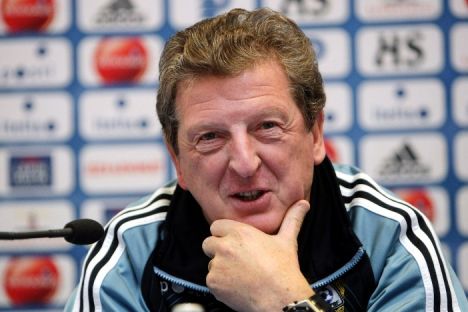
In this cynical age of modern-day football, where money is king and a level playing field merely a description of the state of the pitch on matchdays, the achievements of Fulham – and their coach Roy Hodgson – deserve a special mention.
This is a club that, two years ago, was odds-on for relegation from the Premier League before saving itself on the final day of the campaign; a club that, the following year, with limited funds, achieved its highest ever league position to qualify for the Europa League; a club that, last week, in that same competition, mustered the most remarkable result in its history by beating the mighty Juventus 4-1 at Craven Cottage.
Though the powers that be at Uefa doubtless think otherwise, Fulham’s miraculous result is a shot in the arm for football, which all too often sees the same sides battling it out for the same prizes.
While the Champions League is still the ultimate in footballing entertainment – Arsenal’s quarter-final against Barcelona promises to be a mouth-watering spectacle – European club football has for too long been geared towards the big guns. Once upon a time, the Champions League was known as the European Cup and featured just the champions of Europe’s domestic leagues duking it out for the continent’s ultimate club prize. The Uefa Cup, now the Europa League, featured the best of the rest of Europe – and was also a fantastic competition.
Over the years, however, both competitions have been diluted and modified to accommodate the heavyweights from Europe’s major leagues. The formats have also been changed from a cup to a league format thereby diminishing the likelihood of shock knock-outs and serving to make the rich clubs richer and widen the gap between the haves and the have-nots. The prospect of the underdog winning either competition is negligable.
Unfortunately, the Europa League has been devalued further by the fact that at the Round of 16 stage, the clubs that have been slogging it out since August are joined by half of the teams that failed to reach the knockout rounds of the Champions League.
And yet, despite all of this ridiculous weighting in favour of the big boys, little Fulham, on a shoestring budget, have made it through to the quarter-finals the hard way. Unlike football’s favoured sons, the Cottagers have been battling it out since last summer, when they had to travel the 4,448-mile round trip to the Urals to play the likes of Amkar Perm. They have since taken on Serie A giants Roma, knocked out the holders Shakthar Donetsk and crushed Juventus in that remarkable night at the Cottage.
Manager Roy Hodgson should be knighted for his achievements to English football – and is available at odds of 9/2 to be the next England manager. His win over Juve was all the more remarkable for the fact that his side were 3-1 down from the first leg, missing three key players, conceded a second-minute goal in the second leg to go 4-1 down on aggregate and then scored four unreplied goals to humble one of Europe’s most celebrated sides.
In Brede Hangeland, Hodgson has plucked one of the Premier League’s most sought after defenders from obscurity, he has turned a journeyman Bobby Zamora into a World Cup prospect and, on top of all that, he’s English.
But before England come calling, don’t be surprised if one of Europe’s leading lights try to lure him away. It would be a shame to see Hodgson go but he deserves another crack at the big time and Juve themselves – or Liverpool – could do a lot worse than hire the wily 62-year-old. This is a man who has coached all over the world and whose success at Fulham has been achieved with virtually no money to spend, so just imagine what he could do with the sort of money Rafa Benitez has pissed away at Liverpool.
Whether Fulham go all the way or not the odds about Sir Roy moving on by the start of next season look good value to me.
